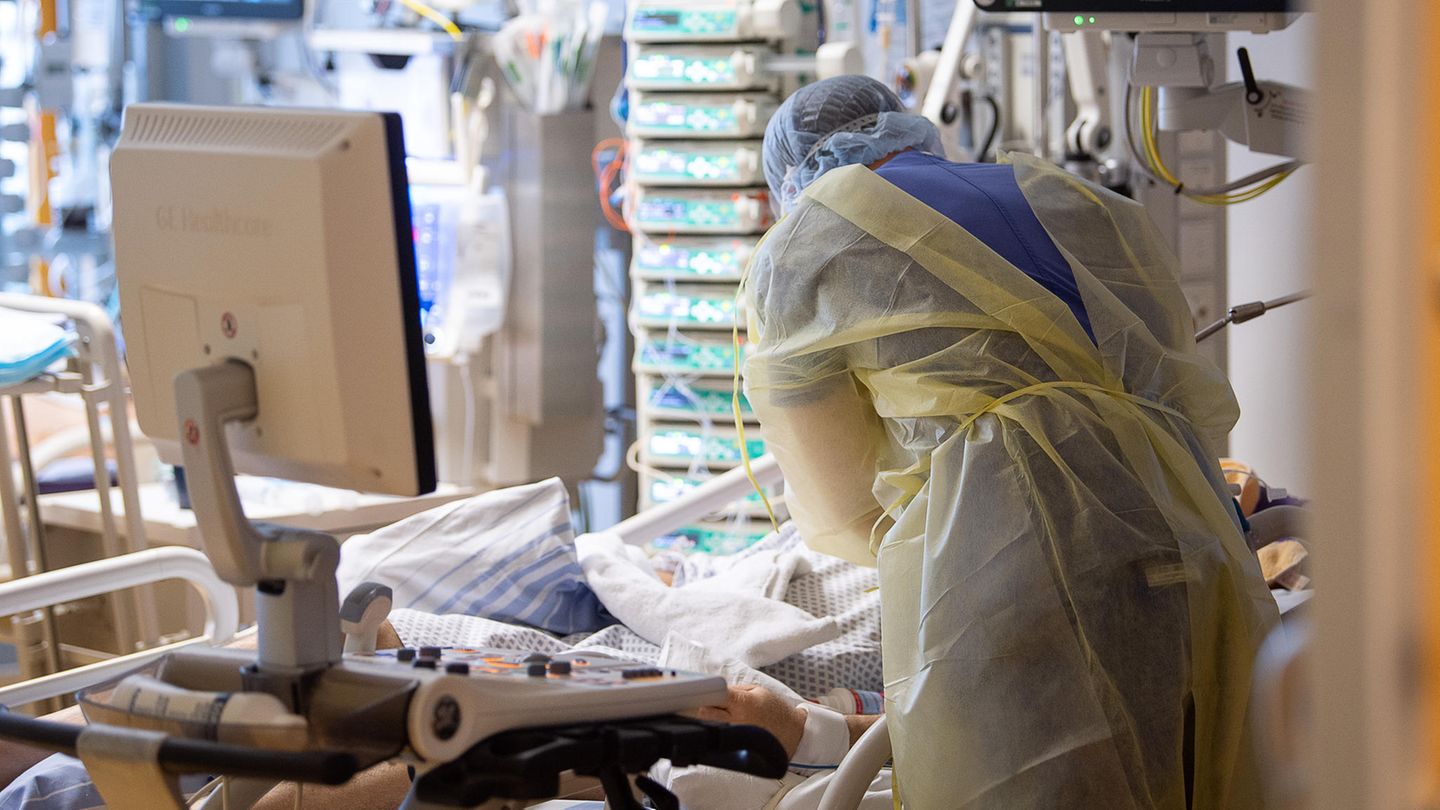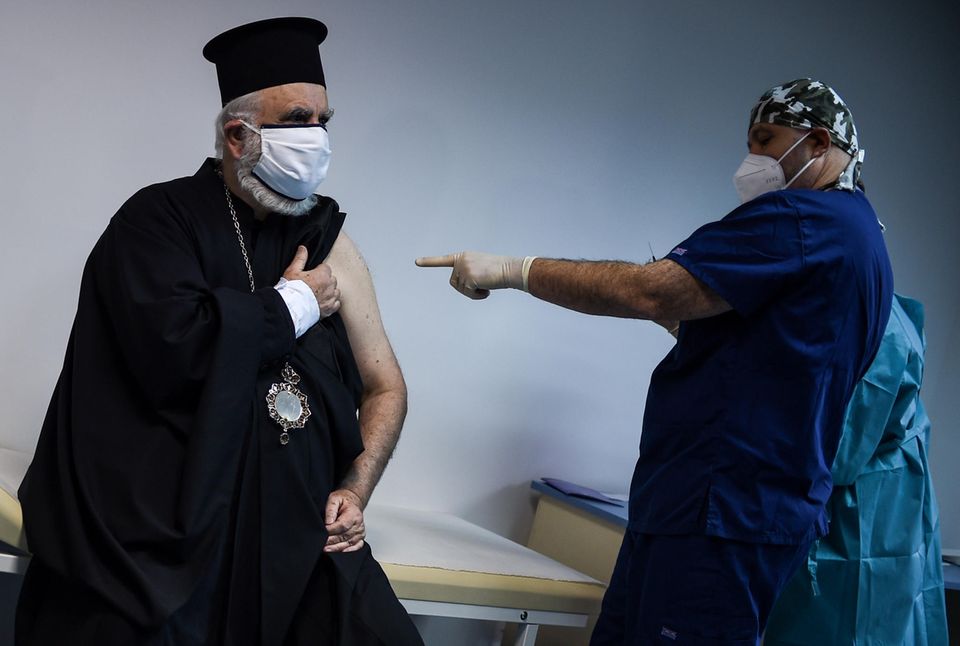Study from Israel
Which people are seriously ill despite complete corona vaccination

A nurse takes care of a Covid-19 patient in the intensive care unit
© Sebastian Gollnow / DPA
Vaccination against the coronavirus reduces the risk of diseases and severe courses. Not all vaccinated people benefit equally: a study shows which people were dependent on hospital treatment despite being fully vaccinated.
Two weeks after the second vaccination, people are considered fully vaccinated. For many, this is associated with a sense of relief. Vaccinated people not only have a lower risk of contracting and contracting the coronavirus. In addition, in case of infection, they develop severe courses less often than unvaccinated ones.
Nevertheless, there is evidence that not all vaccinees benefit equally from the immune protection provided by vaccination. In rare cases, so-called vaccine breakthroughs may occur.
In older, immunosuppressed people and in some cases also cancer patients, the immune response after corona vaccination is weaker, studies show. Researchers, including from the Charité Hospital in Berlin, see this as an explanation for why corona outbreaks continue to be observed in old people’s homes and nursing homes despite double vaccinations. In order to continue to protect people in these vulnerable areas in the best possible way, researchers have recently repeatedly brought the possibility of third-party vaccination into play.
Study from Israel
A study with hospital data from Israel now supports which groups of people could potentially benefit particularly from a booster vaccination. Researchers evaluated the data of 152 patients in Israel who were infected with the coronavirus and had to be treated in a hospital. The study was published in the journal “Clinical Microbiology and Infection” (CMI).
All patients had received the vaccine from Biontech/Pfizer. The second dose was at least seven days ago. Other vaccines were not studied in the study, since the mRNA vaccine is almost exclusively used in Israel. The median age was around 71 years-which means that half of the patients were younger and the other half older. Most of them were men (70 percent). A quarter of the patients came from a nursing home (25 percent).
The researchers found that a large majority of seriously ill patients suffered from existing comorbidities, i.e. other diseases. It is already known that certain comorbidities increase the risk of severe corona courses. High blood pressure was most frequently observed (71 percent), followed by diabetes (48 percent), heart failure (27 percent), chronic kidney and lung diseases (24 percent each), cancer (24 percent) and dementia (19 percent). 40 Percent of patients also took drugs that suppressed their immune systems. Such drugs are common, for example, after organ transplants.
25 Percent, or about one in four, had to be connected to a ventilator. 34 of the 152 patients died. This corresponds to a rate of 22 percent. Only six of the 152 patients were healthy apart from their acute corona disease. This corresponds to a value of four percent.
One question that the study cannot answer in every case is whether individual people had to be treated in hospital because of their existing pre-existing conditions or because of their Covid disease. Around a third of those affected were not seriously ill with Covid-19, the researchers write. This suggests that they had to be treated at the clinic because of other circumstances and that they could not be vaccine breakthroughs. In addition, the number of patients in the study was quite small. No conclusions can be drawn about how often so-called vaccine breakthroughs occur.
Third dose
The data would show where a third dose of vaccine would have to be used, SPD health expert Karl Lauterbach commented on the publication on Twitter. Not all patients had data on which variant of the virus they had contracted. However, 40 people were able to prove that they had been infected with the virus variant alpha (B. 1.1.7). Meanwhile, in the country – as elsewhere – the delta variant is very common.
In Israel, third-party vaccinations are already being used on certain groups of people, including people who have had heart, lung and kidney transplants, as well as some cancer patients. In Israel, many people were vaccinated already at the beginning of the year. There are initial indications that vaccination protection will decrease over time.
Delta reduces effectiveness
Experts also see signs that current vaccines against the delta variant, first discovered in India, are somewhat less effective. The vaccine manufacturers Biontech / Pfizer therefore want to apply soon for approval for the administration of a third dose of their corona vaccine, as recently announced. The booster vaccination could then be administered after half a year.
However, the US health authority CDC has so far expressed restraint on the question of whether a third vaccination against the coronavirus is necessary. Citizens who have been fully vaccinated do not currently need a booster vaccination, it was initially said.
Source:Clinical Microbiology and Infection



